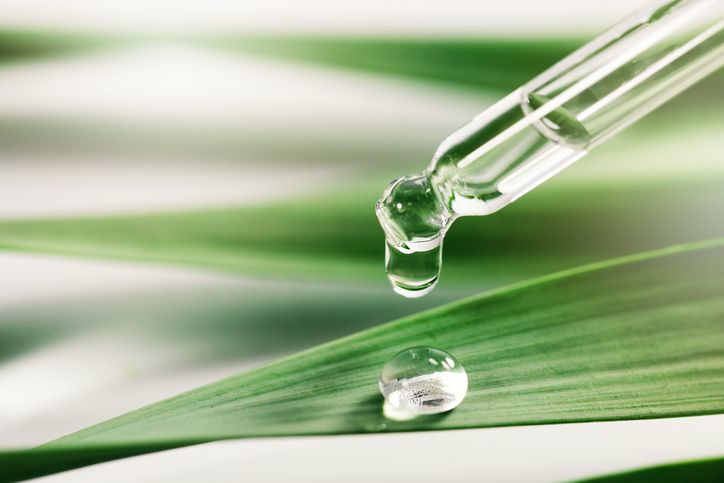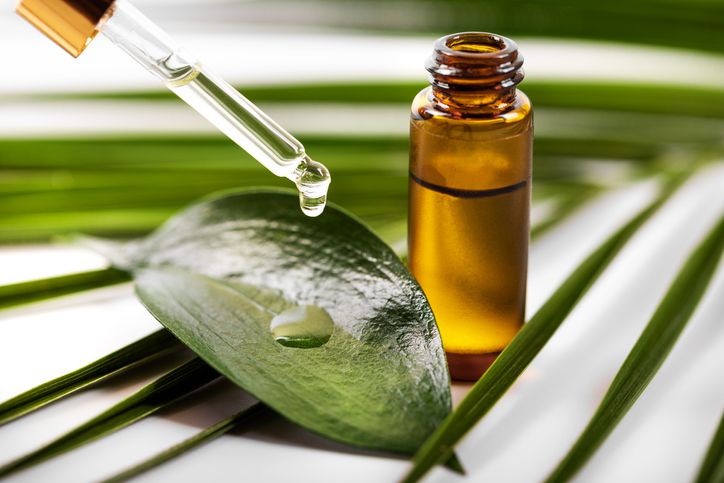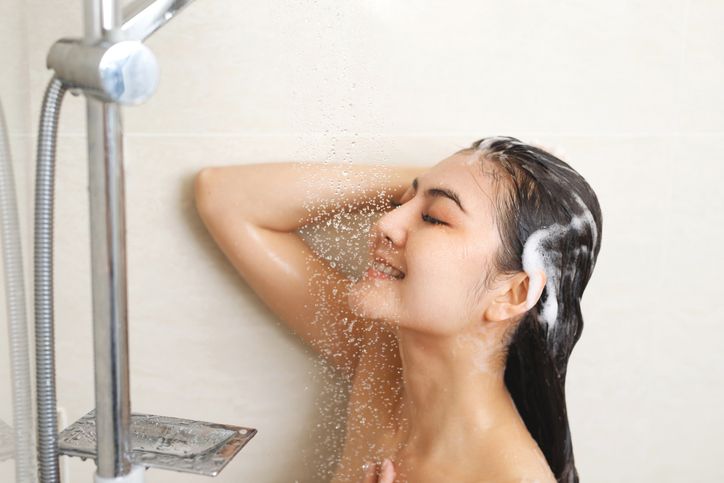
- Home
- Trend
- Weight Loss Strategies
- Acne Tips
- Hair Health Information
- Blemish Removal Tips
- Acne Scar Removal Tips
- Muscle Building Techniques
- Intimate Care Tips
- Postpartum Intimate Care
- Eye Bags Wiki
- Tips for Face Slimming
- Secret of Permanent Hair Removal
- Breast Enlargement Tips
- Cure to Snoring
- Marionette Lines
- Skin-Tightening Secrets
If you’ve ever looked for acne treatments or browsed products designed to combat pimples, you’ve likely come across tea tree oil. Backed by medical studies, tea tree oil is known for its potent antibacterial properties that can effectively kill acne-causing bacteria and help heal breakouts. In this article, we’ll give you the ultimate guide to tea tree oil—explaining its benefits, usage tips, precautions, and more.
What Is Tea Tree Oil?

Tea tree oil—also known as tea tree essential oil—is extracted from the leaves and twigs of the Melaleuca alternifolia, a plant native to New South Wales, Australia, often nicknamed the “Australian tea tree.”
Over 1,000 years ago, the Indigenous people of Australia were already using tea tree oil for its antibacterial and anti-inflammatory effects, such as speeding up wound healing. They even used tea tree leaves in baths to ease pain and fatigue. Modern experiments have since confirmed tea tree oil’s antimicrobial and skin-soothing effects, which is why it’s now widely used in skincare and personal care products.
8 Surprising Benefits of Tea Tree Oil

i. Acne Treatment
Tea tree oil is best known for treating acne and severe breakouts. Its natural antibacterial compounds help kill acne-causing bacteria. Plus, its small molecular size allows it to penetrate deeply into pores and skin layers, reducing inflammation, redness, and itching—ultimately helping blemishes heal faster. It also promotes skin cell regeneration.
ii. Oil Control
Tea tree oil helps regulate oil production. Add 1–2 drops of tea tree oil to a cotton pad soaked in toner and wipe your face to help reduce oiliness. For oily skin, especially in the T-zone, apply a tea tree oil-infused toner as a mask to better control sebum secretion.
iii. Minimizes Pores
By clearing out clogged pores and bacteria, tea tree oil helps minimize enlarged pores. Clean pores can shrink back to their natural size, leaving your skin smoother and more refined.
iv. Promotes Wound Healing
Tea tree oil can help stop bleeding and protect wounds from infection. Apply 1–2 drops directly to minor cuts to disinfect and promote healing. For small burns, apply tea tree oil gently after cold compressing the area.
v. Deep Scalp Detox
Many shampoos contain tea tree oil for its cleansing properties. It helps remove scalp buildup, reduce dandruff, and prevent hair loss. You can also mix tea tree oil with water (1:1 ratio) and massage it into your scalp for deeper detoxification.
vi. Gum & Oral Care
Tea tree oil is praised by dentists for protecting gums and preventing periodontal disease. In Europe and the US, tea tree-infused toothpastes are popular for those with gum pain or swelling. Not common in Hong Kong yet, but you can make your own tea tree mouthwash by mixing 2 drops in 75ml of water.
vii. Air Purification
Use tea tree oil in a diffuser to eliminate odors and purify the air. It also helps eliminate bacteria and even repels insects, making it a powerful natural air freshener.
viii. Athlete’s Foot Treatment
About 70% of people experience athlete’s foot, commonly occurring between toes with symptoms like scaling, itching, and burning. A study with 158 participants found that using a 25%–50% tea tree oil solution on the affected area for one month showed a 55%–64% success rate in treating the condition.
免費體驗
Acne Treatment
1 Minute Self-Registration
Date should not be before minimal date
How to Use Tea Tree Oil for Acne
i. Direct Application on Pimples
Apply a small amount of tea tree oil directly to inflamed pimples. This helps reduce bacteria and calm inflammation. When acne is healing, you can also apply a thin layer of lavender oil around the area to speed up skin repair.
ii. Mix with Aloe Vera Gel
Though generally mild, tea tree oil can be irritating on sensitive or acne-prone skin. Mixing it with aloe vera gel helps moisturize and reduce potential irritation.
iii. Make a DIY Acne Spray
To cover larger areas like your chest or back, make a tea tree oil acne spray. Mix 100ml of hydrating toner with 10 drops of tea tree oil in a spray bottle. Shake before use and spray directly onto the skin.
iv. Use with Toner
After cleansing, add 1–2 drops of tea tree oil to your toner on a cotton pad and wipe your face. You can also soak your T-zone with a tea tree-infused toner to help control oil and prevent breakouts.
Are There Any Side Effects?
For most people, tea tree oil is safe when used in appropriate amounts and concentrations. However, those with sensitive skin may experience itchiness, redness, swelling, or burning. It’s recommended to patch test behind the ear, on the neck, or inner arm before applying it to your face.
Precautions When Using Tea Tree Oil
i. Check the Type of Tea Tree Oil
There are two types: diluted and undiluted. Only diluted tea tree oil can be used directly on the skin. Undiluted versions must be mixed with a carrier before use.
ii. Avoid Large-Area Application
Even though it’s natural, high concentrations can still cause allergic reactions. Use sparingly and follow product instructions. Also, avoid applying it to unaffected areas.
iii. Discard After One Year
Once opened, tea tree oil can degrade due to air, moisture, and light. Using oxidized oil may worsen skin issues. Store it in a cool, dry place and don’t use it if it’s been open for over a year.
iv. Do Not Ingest
Contrary to some online claims, tea tree oil is not safe for ingestion. Swallowing it can cause side effects such as nausea, vomiting, abdominal pain, or changes in blood cell counts.
v. Not Recommended for Breastfeeding Mothers
Tea tree oil should not come into contact with infants. Nursing mothers should avoid using it on their bodies; if absolutely necessary, it can only be used on the face with extreme caution.
免費體驗
Acne Treatment
1 Minute Self-Registration
Date should not be before minimal date
What to Look for When Buying Tea Tree Oil
i. Quality of the Plant Source
Tea tree oil quality depends on factors like the plant’s origin, growing conditions, and extraction methods. Choose oils made from high-grade or organic sources. Reputable brands often disclose the plantation origin.
ii. Active Ingredient Standards
Check the concentration of key compounds. Terpinen-4-ol (antibacterial agent) should be above 35%. 1,8-Cineole (a potentially irritating compound) should be below 10%, ideally under 3%.
Perfect Medical Acne Treatment: A Gentler, Faster Solution
While tea tree oil can help with acne, it may irritate sensitive skin and usually requires consistent use over time to see results. If you're looking for faster, more noticeable improvements, consider Perfect Medical’s Acne Treatment.
This non-invasive treatment uses advanced dual-spiral vacuum technology to deeply cleanse the skin by removing excess sebum, dead skin cells, blackheads, and impurities, helping unclog pores and prevent new breakouts. Simultaneously, it delivers a proprietary medical serum to soothe inflammation, accelerate healing, deeply hydrate, and regulate oil production.
Additionally, the treatment promotes collagen regeneration to fade acne scars and reduce pitted marks. Perfect Medical is now offering a free trial! Click the link below to book your appointment. Don’t wait!
Free Trial: Perfect Medical Acne Treatment免費體驗
Acne Treatment
1 Minute Self-Registration
Date should not be before minimal date
FAQ

What is tea tree essential oil?
Tea tree oil, also known as tea tree essential oil, is extracted from the leaves and branch tips of the Melaleuca alternifolia plant, commonly referred to as the Australian tea tree. It’s believed that Indigenous Australians have been using tea tree oil for thousands of years for its antibacterial and anti-inflammatory properties to promote wound healing. They also used tea tree leaves in baths to relieve body aches and fatigue. Scientific research later confirmed tea tree essential oil's antibacterial and anti-inflammatory effects, making it a popular ingredient in skincare and household products.
What are the benefits of tea tree essential oil?
Tea tree essential oil offers a range of benefits, including treating acne, controlling oil production, tightening pores, and promoting wound healing. It can also help with gum disease, athlete’s foot, and deep-cleansing the scalp.
Does tea tree essential oil have side effects?
For most people, tea tree essential oil is quite safe when used in proper dilution and dosage. However, individuals with very sensitive skin may experience allergic reactions such as itching, burning, swelling, or redness after use.
Can tea tree oil remove acne scars?
While tea tree oil has antibacterial properties that help treat acne, it is not effective at removing or fading acne scars.
Can people with sensitive skin use tea tree oil?
Generally speaking, tea tree oil is mild enough for use on sensitive skin. However, to ensure it won’t cause irritation, it’s advisable to do a patch test on delicate areas like behind the ear, the neck, or the inner arm before applying it to the face. If no adverse reaction occurs, it’s safe to proceed with facial use.








